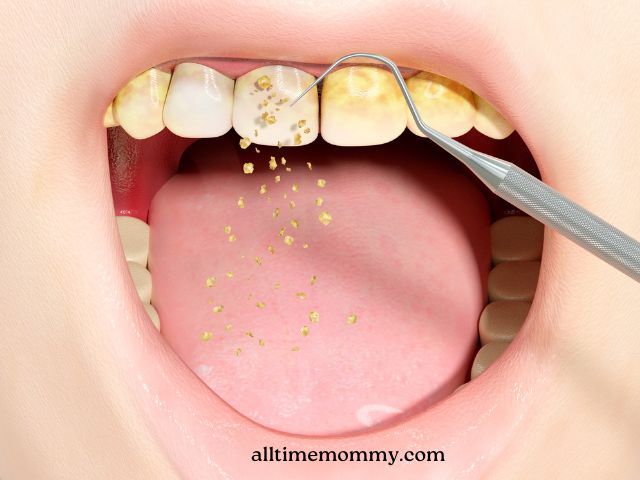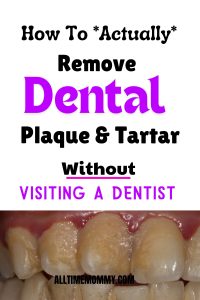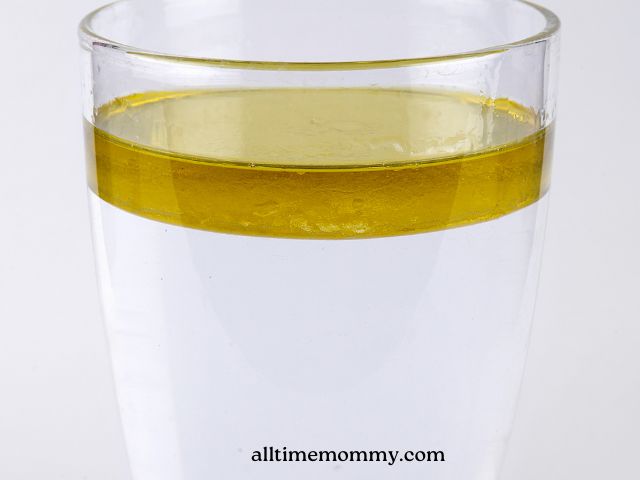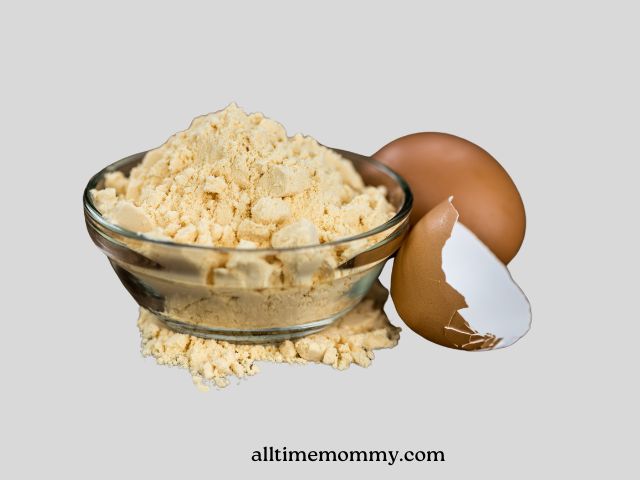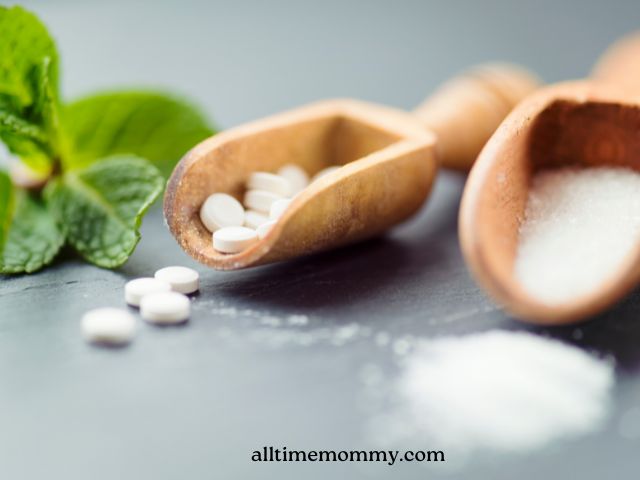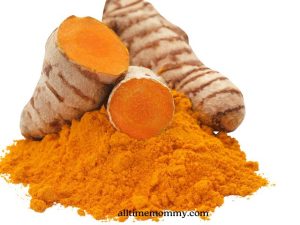Discover simple to make home remedies for dental plaque and tartar. Learn to maintain a healthier smile, prevent Yellow coloring, tooth decay, and keep your gums strong.
Do you feel frustrated seeing your teeth turn yellow?
You see, sometimes, too much dental plaque and tartar can be stubborn and won’t just go away with daily brushing.
No matter how often you brush or change your toothpaste, you may never get the sparkling white teeth you see in the adverts.
Why? Because of the numerous bacterial activities in our mouths.
Plaque is just a soft, sticky biofilm that builds up on the outside of the teeth. You may often feel it in the morning when you wake up along the gum line or after closing your mouth for a while.
Plaques are not dangerous when removed often through brushing; however, when left to harden, they form a more severe, hard yellow-colored deposit called Dental calculus or tartar.
Tartar may seem harmless at first, but over time, research shows that it can lead to more severe dental problems.
This annoying yellow layer may cause gingivitis, receding gums, and periodontitis.
But ,does it always have to be this way?
No.
The good news is that you don’t need expensive products or frequent trips to the dentist to maintain a healthy, plaque-free teeth.
With the right ingredients, you can create an effective homemade paste and routine that targets dental plaque and tartar naturally.
In this blog post, we’ll introduce you to the best remedies for tackling dental plaque and tartar.
You’ll only need simple, affordable ingredients you probably already have in your kitchen.
But before then,
What Causes Yellow Teeth?
Your teeth may turn yellow due to several reasons,
- Bacterial activities in your mouth that feed on food leftovers and release acid and other compounds that for plaque
- smoking or chewing tobacco
- genetics
- use of excessive fluoride
- poor oral hygiene
- lack of enough saliva production
What are the Symptoms of Plaque on Your Teeth?
- You experience bad breath due to bacterial activities that release acid and other smelly compounds that form plaque.
- yellowish goo on dental floss
- A slimy biofilm on the teeth
Affiliate Disclosure: As an Amazon Associate, I get a small commission for purchases made from Amazon.com through links in this post. Learn more about our affiliate disclaimer here.
How To Remove Dental Plaque and Tartar Without Visiting the Dentist
1. Invest in Toothpaste with Herbal Extracts.
I’ve heard many people complain that despite regularly brushing their teeth, their enamel continues to turn yellow.
Often, this may happen if the toothpaste isn’t effective on bacteria and chemicals that cause tartar buildup.
A good toothpaste should effectively remove plaque and prevent tartar buildup without harming enamel.
It should contain minerals that help strengthen the gums and prevent tooth decay.
You should also choose a toothpaste that contains gentle abrasives, such as baking soda or sea salt. These abrasives help remove teeth’ surface stains and plaque without being too harsh on the gums or wearing off the enamel.
Additionally,
Good toothpaste should help maintain a neutral or slightly alkaline pH in the mouth.
Having a desirable pH helps neutralize acids produced by bacteria in the mouth, protecting tooth enamel from erosion.
Toothpaste with antibacterial ingredients such as neem, eucalyptus, and clove oil can significantly reduce harmful bacteria in the mouth. By reducing the bacterial load, you lower the chances of massive plaque formation and gum disease.
Action points.
In addition to your everyday toothpaste, make your homemade organic paste and use it one to two times a week to prevent plaque buildup and tartar.
How to make your organic antiplaque toothpaste
- Get a pinch of Neem leaf and bark powder
- 3 drops of clove oil
- 1/4 teaspoon baking soda
- ¼ cup of water
- Mix everything to form a paste.
- Brush with a soft bristle toothbrush in a circular motion as described above for about 2 minutes.
- Spit and rinse your mouth with clean water.
- Do this after your regular brushing at least two to three times a week, and thank me later.
According to research, neem has antiplaque and anti-gingivitis effects. In fact, this study confirms that neem is an antimicrobial agent that effectively inhibits the activities of microorganisms that contribute to plaque formation.
You may also incorporate Ready-made Neem Mouthwash after meals.
To make your neem mouthwash;
- Boil a few neem leaves in water and strain the liquid.
- Allow it to cool, and use it as a mouth rinse.
Conversely, clove oil kills microorganisms by destroying the biofilm and inhibiting their enzyme activity.
Baking soda can protect teeth against demineralization and is an effective agent for removing plaque and biofilm.
Shop for Neem Toothpaste Here
Best baking soda toothpaste
Related:
How To Fix Receding Gums With Natural Home Remedies
Best At Home Teeth Whitening Paste(Removes Tartar Completely Without Hurting Your Gums)
10 Powerful Dry Cough Remedies For Adults
2. Oil Pulling Before Sleep for Dental Plaque
Oil pulling involves swishing oil such as organic coconut, sesame, or sunflower in your mouth for several minutes. These oils act as natural cleansers.
They trap and remove bacteria and toxins from the hidden parts of your teeth and mouth.
Since plaque is a sticky, slimy film of bacteria, reducing the bacterial load plus their activities helps prevent plaque formation on teeth.
Regular oil pulling can help reduce plaque accumulation, a biofilm that forms on teeth when bacteria mix with food particles and saliva.
Oil pulling with coconut oil, tea tree, and salt before you sleep is super beneficial.
How?
Certain oils, such as coconut oil, contain compounds like lauric acid with antimicrobial properties. This helps maintain a balanced oral microbiome by reducing harmful bacteria while allowing beneficial bacteria to thrive.
organic Coconut oil has antibacterial properties, while tea tree is essential oil rich in antimicrobial and anti-inflammatory properties. salt has a gentle abrasive effect in removing debris from the mouth.
Here’s a step-by-step guide on how to do oil pulling for dental plaque
Ingredients Needed:
- 1 tablespoon of coconut oil (extra virgin or cold-pressed)
- 1-2 drops of tea tree oil (ensure it is food-grade, as essential oils can be potent)
- A pinch of salt (preferably sea salt or Himalayan pink salt)
Instructions:
1. Prepare the Oil Mixture
-
- Start with 1 tablespoon of coconut oil. If the oil is solid (as it can be at cooler temperatures), you can warm it slightly in your mouth until it melts or in a bowl of warm water. Do not use a microwave or stove directly to avoid overheating.
- Add two drops of organic tea tree essential oil to the melted coconut oil. Be careful not to add too much tea tree oil, as it is very potent and can cause irritation if used in excess.
- Mix in a small pinch of salt. Make sure the salt dissolves into the oil mixture; this may take a little time as salt does not dissolve quickly.
2. Swish the Oil Mixture in Your Mouth
-
- Take the prepared oil mixture into your mouth.
- Swish the oil gently around your mouth for 10–20 minutes. Ensure you push, pull, and swish the oil through your teeth and around your gums. This helps the oil reach all areas of your mouth and removes bacteria and debris.
3. Spit Out the Oil
-
- After 10–20 minutes, spit the oil into a trash can and not the sink to avoid clogging your pipes.
- Rinse your mouth to remove any residual oil. You can use salt water for an extra antibacterial effect.
Shop for best Coconut oil for oil pulling Here
Related:
9 Best Toothache Relief Home Remedies For Instant Pain Relief
7 Best Remedies For Bloated Stomach And Gas
4. Eggshell Powder and Toothpaste
Eggshells have been traditionally used in various home remedies for their high calcium content, which are believed to help strengthen teeth.
Eggshells contain high level of calcium carbonate, a major component of teeth.
Studies suggest using eggshell paste or powder can help in remineralization process. Remineralizing the teeth, makes them stronger and more resistant to decay and the effects of bacterial plaque.
Eggshell powder also contains other trace minerals, such as magnesium and phosphorus, which can support the remineralization process of enamel.
But that is not all.
When grounded into a fine powder, eggshells can act as a mild abrasive. This can help remove plaque deposits from teeth when used as an ingredient in homemade toothpaste. By reducing plaque accumulation, there’s a reduced likelihood of it hardening into tartar.
Homemade Eggshell Toothpaste
- Preparation:
To make eggshell powder, thoroughly clean and boil the eggshells to remove any bacteria. Then, bake them in an oven at a low temperature to dry them out. Grind the dried shells into a fine powder using a coffee grinder.
- how to use eggshells for dental plaque and tartar
Combine the eggshell powder with a small amount of baking soda. You may add coconut oil, few drops of peppermint oil for flavor and drops of water to form a paste for brushing your teeth.
Shop for Best Ant-Tartar Toothpaste Here
4. Chewing Xylitol Gum for Dental Plaque
Xylitol is a natural sweetener that mouth bacteria cannot ferment. Unlike regular sugar, which bacteria metabolize to produce acid, xylitol disrupts the energy production processes of harmful bacteria such as Streptococcus mutants.
Streptococcus mutants are one of the significant contributors to plaque formation and tooth decay. With less acid production, the bacteria die off, leaving your mouth healthy.
According to research, you can prevent plaque formation by chewing (100%) xylitol three to five times per day after meals, for a total dose of 5–10 g of xylitol per day.
Infact, human studies suggest that replacing your regular sugar with xylitol may help reduce tooth decay by starving of harmful bacteria.
And not just that.
Xylitol also increases calcium absorption in your gut system, strengthens teeth, and protects against osteoporosis.
Additionally;
Chewing gum stimulates saliva production, a natural defense mechanism against tooth decay and plaque buildup. Saliva is a powerful weapon that helps wash away food residues, neutralize acids, and provide essential minerals to repair early tooth decay.
Increased saliva flow from chewing xylitol gum enhances these protective effects.
According to Zipporah Skylar’s testimony, ever since she started chewing xylitol gum, she has no longer struggled with tartar.
“The Xyltiol kills bad bacteria, feeds the good bacteria, stimulates saliva flow, helps to dislodge plaque and prevent it from sticking, and keeps the PH of the mouth at a good level. I’ve been using Xylitol gum for several months and am thrilled with my progress.” She says.
Shop for Xyltiol Gums Here
Related:
7 Hacks That Will Help You Stop Sugar Cravings Fast
10 Warning Symptoms That You’re Eating Too Much Sugar
5. Use Turmeric Paste
Turmeric is an ancient spice found in almost every kitchen. According to a study, turmeric can potentially prevent plaque buildup and gingivitis. Its active ingredient, curcumin, is known for its anti-inflammatory and antibacterial effects, which provide numerous benefits to oral hygiene.
Additionally, turmeric has mild abrasive properties, which can help remove tartar or surface stains from teeth, brightening your smile and giving the appearance of cleaner teeth.
How to Use Turmeric for Dental Plaque and Tartar
The best way to use turmeric for dental plaque is either to make a paste or a mouthwash.
For a paste, Mix a pinch of turmeric powder with a few drops of water or coconut oil. Brush your teeth with the paste a few times a week.
To make a mouthwash, Mix a teaspoon of turmeric powder in lukewarm water. Swish the water around your mouth for about a minute and spit it out.
6. Get a Good Toothbrush For Dental Plaque
Having a good toothbrush is essential in preventing tartar buildup.
Why? Because it effectively removes dental plaque, the primary precursor to tartar.
Tartar forms when plaque is not continuously removed from the teeth or left to harden.
To be on the safe side,
This is all you need.
Get a high-quality toothbrush with soft bristles. I highly recommend an electric brush. It does an excellent job with severe plaque buildup.
At least brush once in a day
Pay attention to how you hold your toothbrush. Hold it with your thumb and index finger. Do you remember how you used to hold a pencil? That is how it should be. Ensure you do not apply pressure to your teeth.
Position the toothbrush at a 45-degree angle to your gums, and use small, gentle circular motions.
Brush for at least two minutes, brushing every quadrant of your mouth (upper left, upper right, lower left, and lower right).
Shop For best toothbrush for adults
7. Check Your Diet To Stop Nourishing Harmful Bacteria
Your diet is very crucial when it comes to reducing plaque and tartar buildup.
How?
Some diets promote the growth of harmful bacteria that feed on your enamel and destroy your teeth, while others starve them off and inhibit their activities.
The bacteria in plaque thrive on sugars and fermentable carbohydrates in your diet.
When these bacteria metabolize sugars, they produce acids that attack tooth enamel. Also, when this acid combines with food residues in your mouth, it contributes to plaque formation, which eventually becomes tartar when left to harden.
By minimizing your sugary foods and beverages (such as candies, sodas, and baked goods), you reduce the primary food source for these harmful bacteria, lowering the risk of plaque buildup.
Also, invest in Vitamins A, D, K2, calcium, phosphorus, and minerals that promote the well-being of your oral health.
Up Next:
12 Lazy Girl Weight Loss Hacks That Actually Work
8 Things Healthy Conscious Women Do To Prevent Urinary Tract Infection
DISCLAIMER The information contained in this post is for general information purposes only. I’m not a health practitioner and as such, this information should not be used as a substitute for consultation with your professional service provider.

